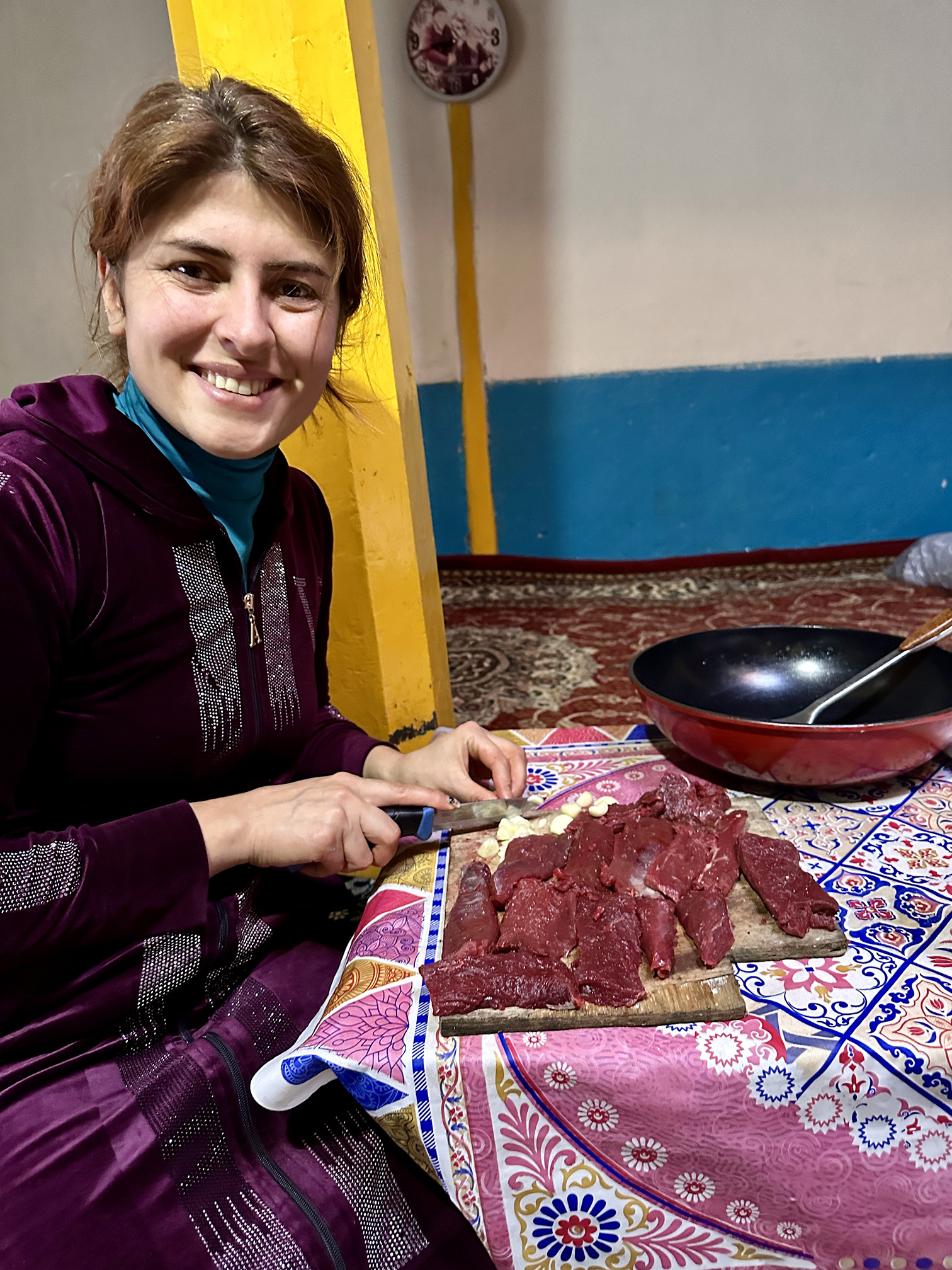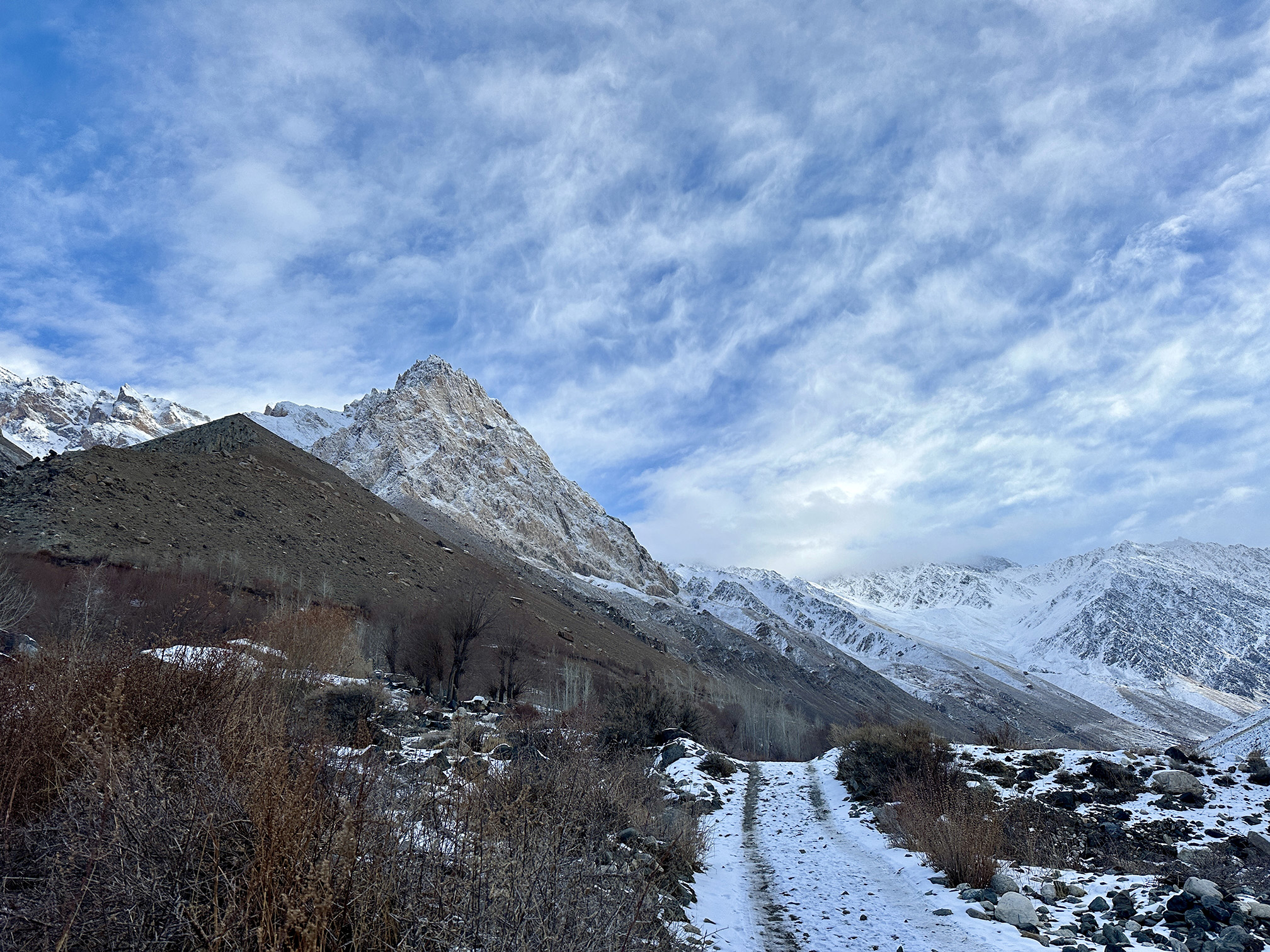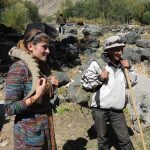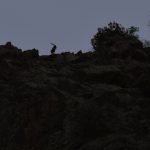A hunter celebrates his birthday with a very special ibex hunt in Ravmed, a remote mountain village in Tajikistan.
Ravmed is a village in the Pamir Mountains of Tajikistan. About three hundred people live there: subsistence farmers and livestock herders whose way of life has not changed much in hundreds of years. The village is in a steep valley at 9,800 feet. You can see peaks more than 20,000 feet high from the village.
I tried to go to Ravmed last April, but the road from the Bartang Valley was blocked by a huge avalanche. I was hoping for better luck this time.
On January 6, 2024, Mike Rossey and I met our guide, Latifa Gulomamadova, in Dushanbe, the capital city. It was Mike’s first trip to Tajikistan, and my sixth.
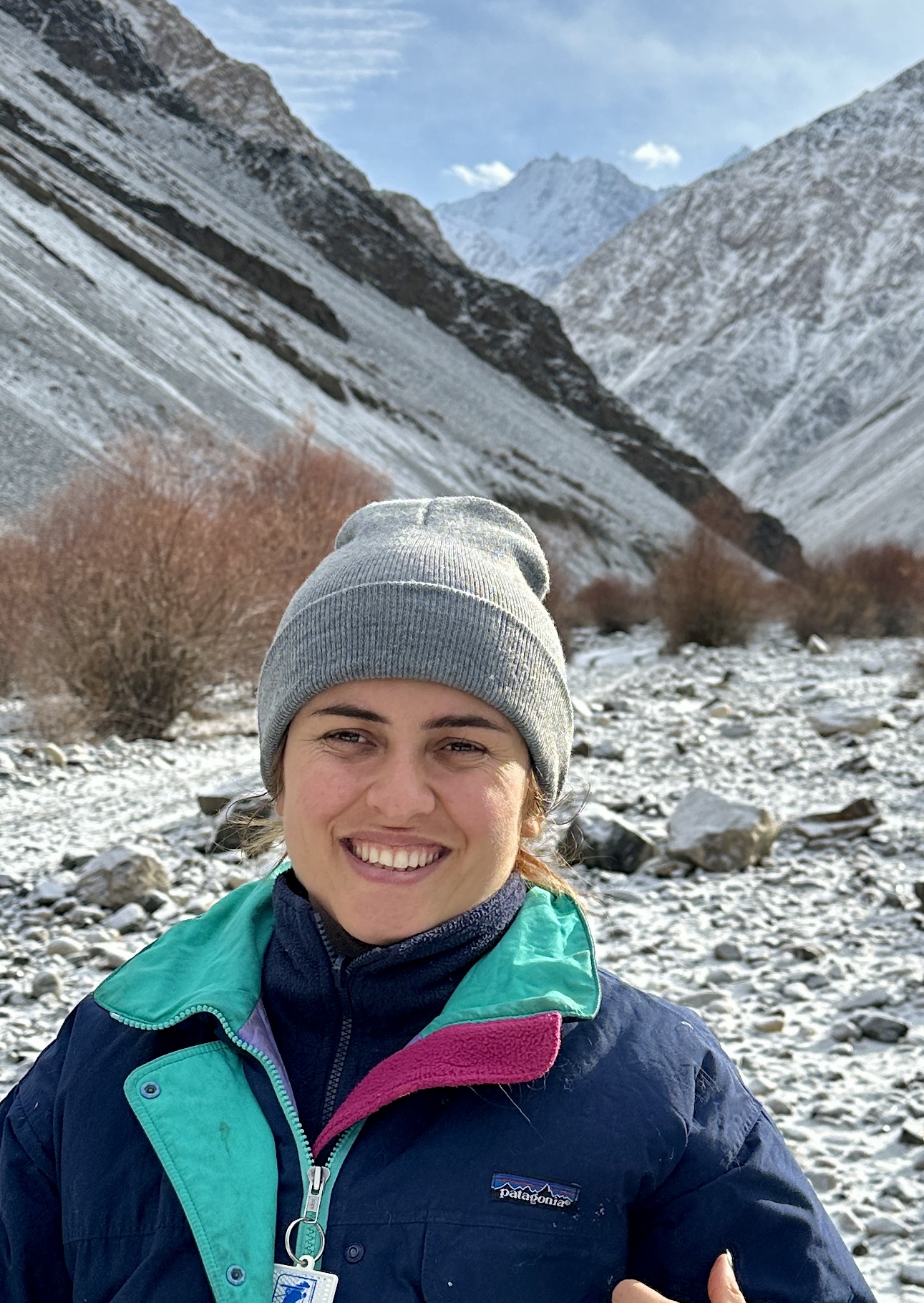
It took fourteen bumpy hours to drive from Dushanbe to Ravmed. Much of the way, there was unstable-looking rock on the left side of the Land Cruiser and a deep canyon on the right. The last half of the journey was on gravel roads.
Mike and I had come to Tajikistan to hunt ibex. I had booked the trip through Neal and Brownlee, booking agents who have extensive experience and contacts in this area.
Hunting in Tajikistan was uncontrolled until recently. In 2009, only about 100 ibex remained in the mountains near Ravmed. Subsistence hunters had overharvested the area.
Tajikistan has been doing a much better job of managing wildlife in recent years. In 2010, people in Ravmed and nearby villages stopped uncontrolled hunting and established a 100,000-acre hunting conservancy owned by the villagers.
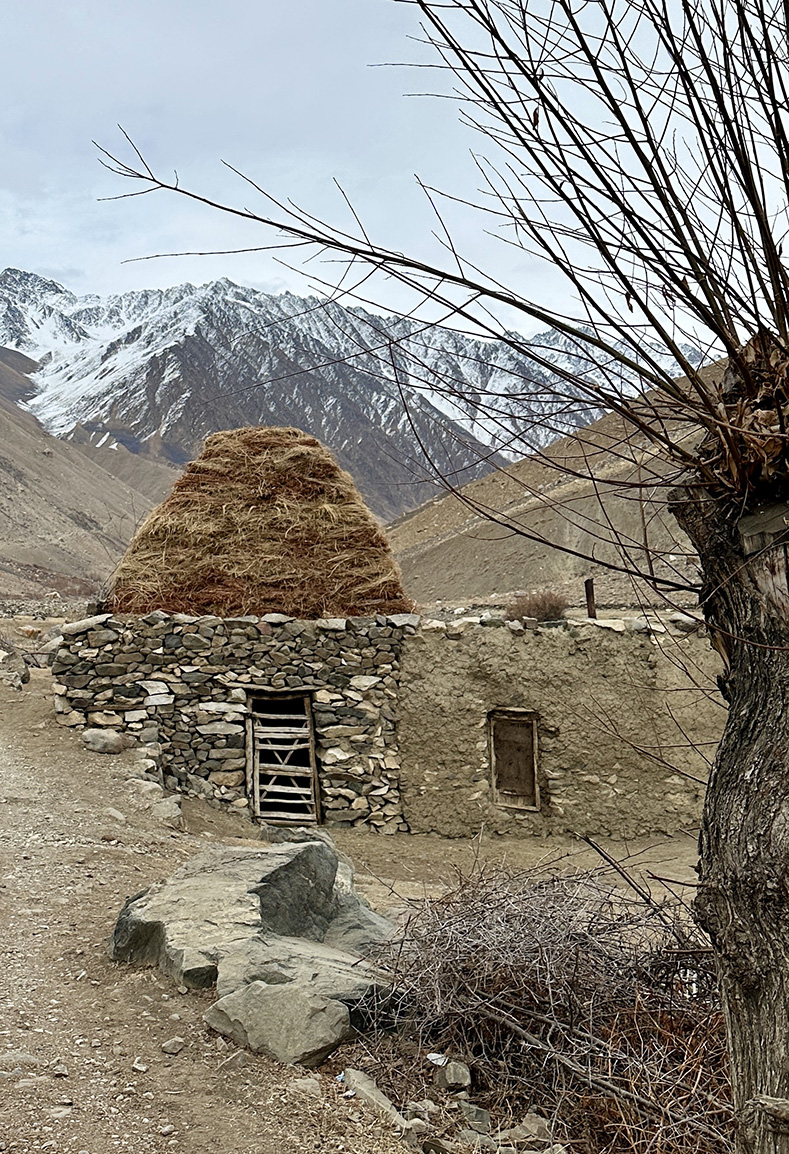
Bringing a limited number of trophy hunters to the area has added cash to the village’s subsistence economy and has given the people who live there an incentive not to overharvest wildlife. The population of ibex has increased to approximately 1,000, a tenfold gain in only fourteen years.
Snow leopards eat ibex. Their numbers also have increased.
Bureaucratic problems paused trophy hunting in Ravmed for two years. This January, the conservancy reopened, with two permits for ibex issued by the government of Tajikistan.
I was very happy to be hunting once more in Tajikistan and to be guided again by Latifa, whom I have known for seven years. I was also able to spend time with her father. Gulbek is fifty-nine years old and 100 percent old school. When he was in his twenties and thirties, he hunted the mountains around Ravmed with a matchlock rifle, ragged cotton clothing and played-out, lopsided boots. He crossed the high passes alone, wandering through terrain that reminds me of the Alaska Range.
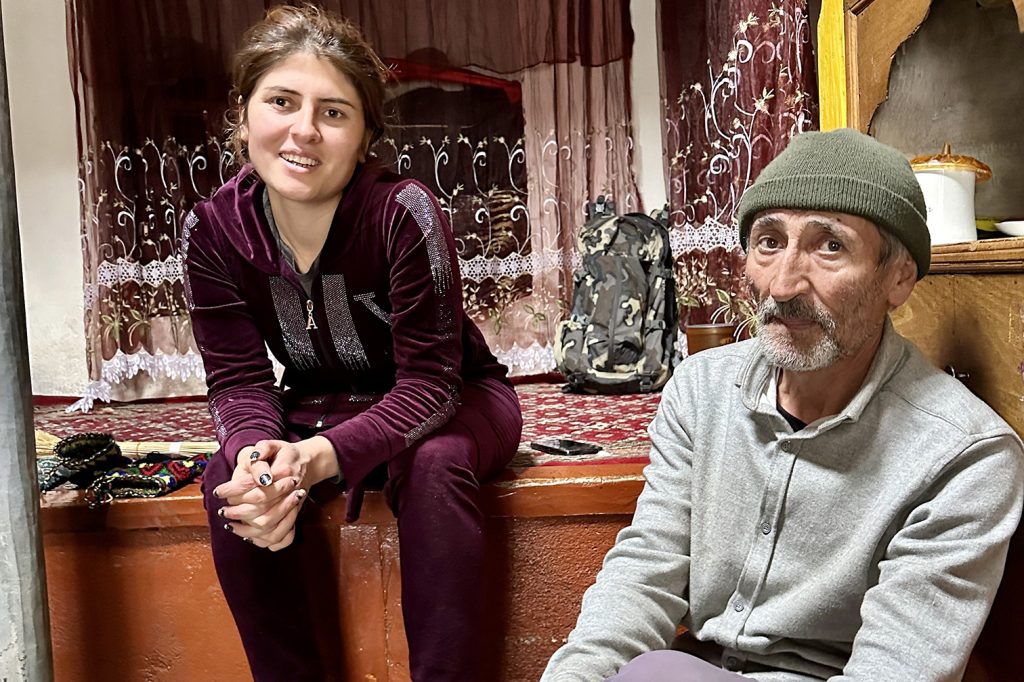
Most winters, snow pushes the ibex down from the high peaks. Gulbek says they sometimes come within a hundred yards of his house. This January, there was only a dusting of snow. We saw ibex every day, but they were thousands of feet above us.
I was in no hurry. I wanted to absorb as much knowledge as I could from Gulbek and the other mountain people. I was happy to wait for the ibex to come to me. I spent the days glassing animals from the village and visiting with Latifa’s relatives. Everyone offered me tea and soup or dumplings along with traditional flat bread.
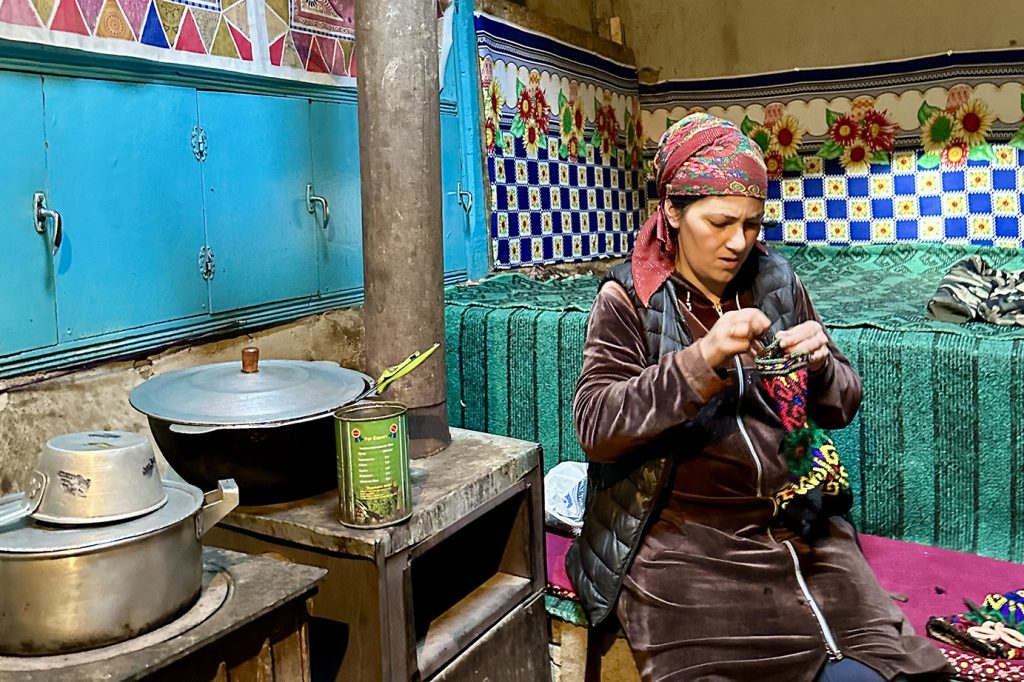
Villagers live in flat-roofed houses made of peeled poplar logs and rocks covered with adobe. Some of the houses are around two hundred years old, with the ceilings and rafters blackened by years of smoky fires. The village has a small hydroelectric plant. Nobody has running water.
Most houses are a single room that is heated by a stove made of welded sheet metal. There are not many trees at this altitude. Villagers burn twigs and branches up to about two inches in diameter. The ones who are doing well can buy a bag of coal. The others burn animal dung.
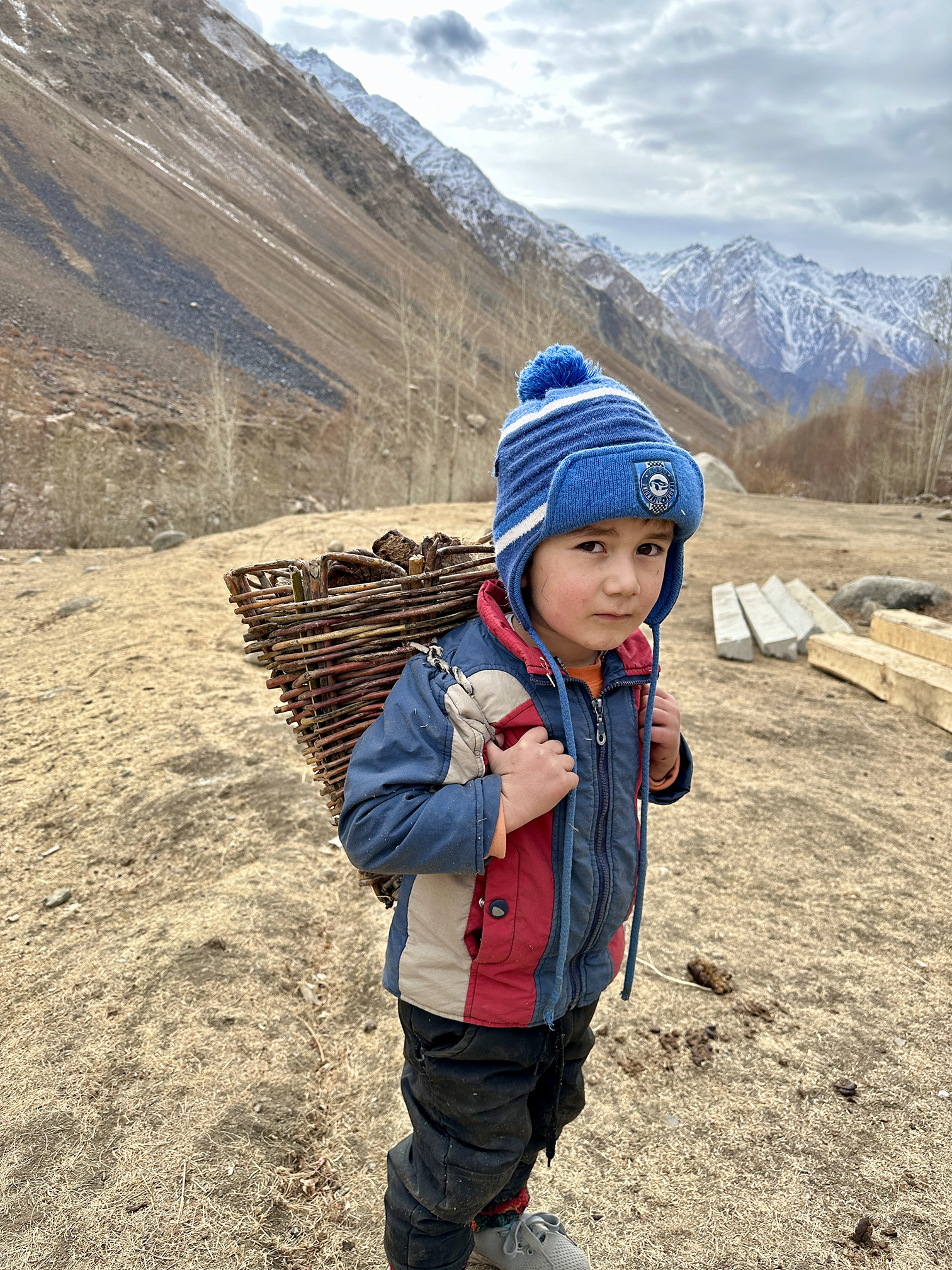
One day, we watched a mother snow leopard attempt to stalk a herd of ibex while her two kittens hid. A few nights later, wolves came into the village and killed a dog.
On January 16, a nine-year-old ibex obliged me by walking down to within 300 yards of where I was sitting. I fired my single-shot Blaser. The ibex took a couple of steps and rolled down the mountain like a rag doll, setting off a rockslide. Six men waded the fast, icy river barefoot to retrieve it.
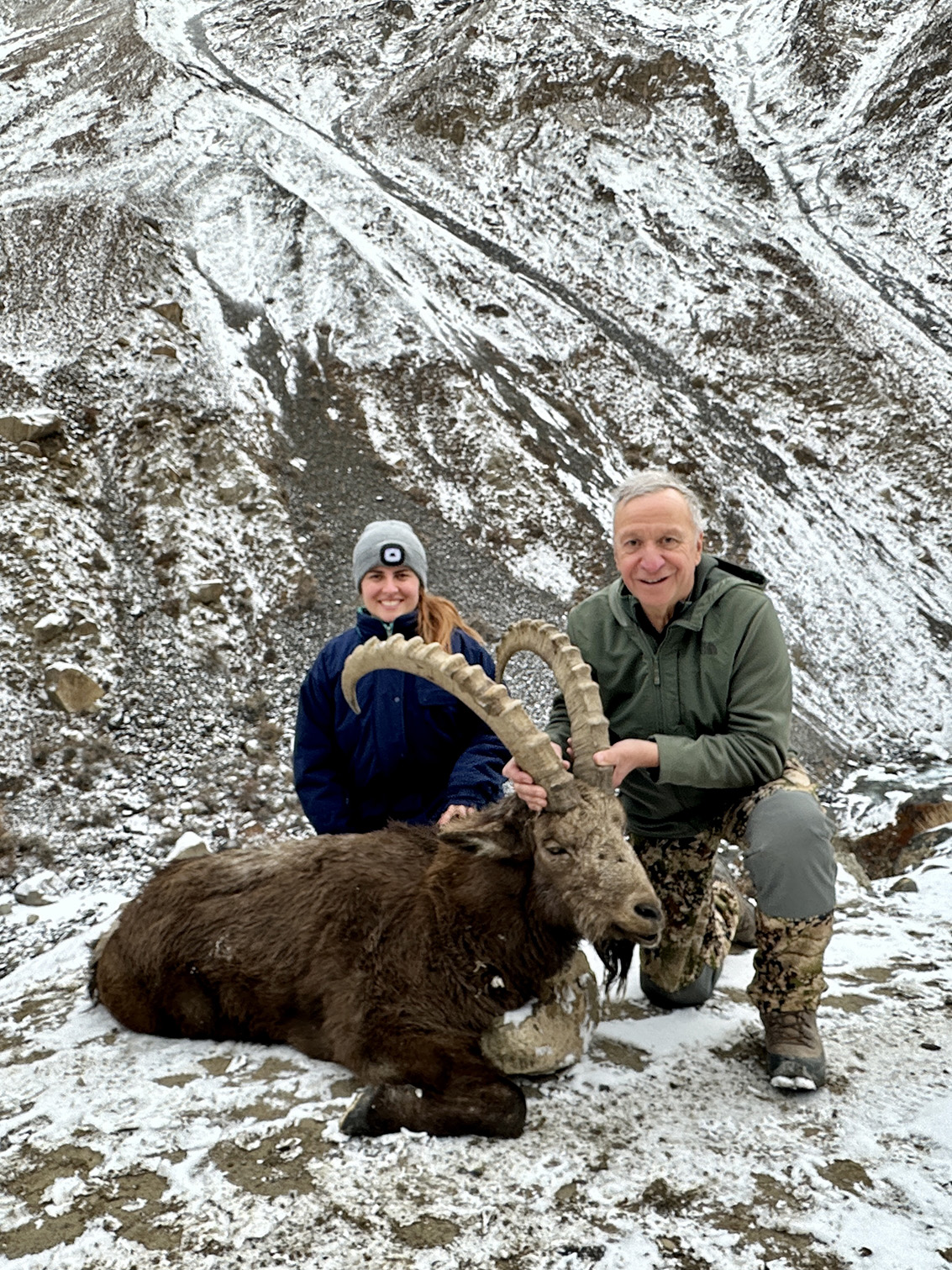
My birthday was two days later. Latifa cooked chunks of my ibex with rice, onions, carrots, and cumin. She also made a frosted six-layer cake on the wood stove. Gulbek brought out a plastic Coca-Cola bottle of moonshine that he distills from wheat and apricots. Traditional music in a minor key wailed and warbled from somebody’s phone. Nobody even complained when I tried to dance.
It’s too bad that I had to wait seventy-two years to have a birthday party this good.
